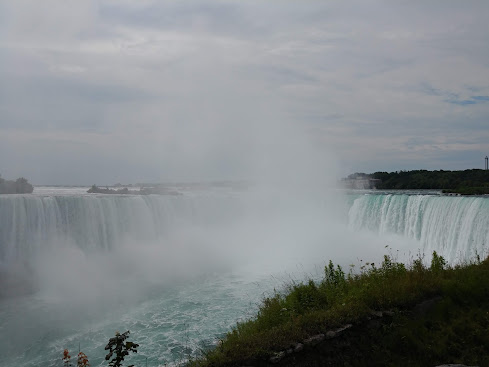Great Are the Works of God -- Sermon for Epiphany 4B (Psalm 111)
“Praise to the Lord, the Almighty, who rules all creation. O my soul, worship the wellspring of health and salvation. All ye who hear, now to God’s temple draw near. Join me in glad adoration.”
With this hymn, we lift up praise to God our creator who is the “wellspring of health and salvation.” We celebrate the one who “o’er all things so wondrously reigneth.” We do this in a time of pandemic when we might feel more like singing a lament than a song of praise. Nevertheless, we hear the call to sing praise to God in this word from Psalm 111.
The psalm begins with a “Hallelujah” and concludes with a declaration that God’s “praise endures forever.” This song of praise invites us to give thanks to God with our whole heart because “great are the works of the Lord.”
Scott Hoezee captures the feel of this Psalm when he writes:
Psalm 111 is a shook-up bottle of champagne when the cork flies off: it is effervescent, effusive, and thus it is delightfully over the top in most every way. It’s one of those poems that tempts one to plant tongue firmly in cheek to ask the psalmist, “Don’t hold back: tell us what you really think!” From first to last the psalm jumps up and down with enthusiasm for God, for God’s character, for God’s works. [https://cep.calvinseminary.edu/sermon-starters/epiphany-4b-3/?type=the_lectionary_psalms]
While the Psalmist may be filled with enthusiasm for God, we might not be feeling that enthusiasm. We might resonate more with the words of Psalm 137:
1 By the rivers of Babylon—there we sat down and there we wept when we remembered Zion.
2 On the willows there we hung up our harps.
3 For there our captors asked us for songs, and our tormentors asked for mirth, saying, “Sing us one of the songs of Zion!” (Ps. 137:1-3)
Like the exiles in Babylon, we long for the time when we can get back to doing normal things like sitting down at a restaurant or going to a movie without fear of catching a deadly virus. We look forward to visiting friends and family without wearing a mask. This pandemic has been dragging on way too long. While there are reports of light at the end of the tunnel; that light still seems rather dim. Then there’s the political system that remains dysfunctional. With all that’s going on in the world, we might not feel like singing upbeat songs of praise. Nevertheless, the Psalmist invites us to sing a song of praise to God. We are invited to give thanks to God with our whole heart, because “great are the works of the Lord.”
The Psalmist speaks of both God’s transcendence and immanence. The Psalmist points to God’s works as evidence of God’s faithfulness. Although the words we use to sing of God’s glory and express our understanding of the mystery that is God’s essence, are imperfect, the invitation still stands.
The message of the Psalm is rooted in a recognition that God’s nature remains a mystery to us. That means when we come and worship God, we do the best we can to celebrate God’s glory and faithfulness. In that celebration, we find hope and peace as we declare that God’s deeds are “splendid and glorious” (Ps. 111:3 NJPS).
While the Psalmist celebrates God’s great works, including creation itself, we also hear a word about God’s immanent presence. The psalmist reveals that God is “gracious and merciful. He provides food for those who fear him; he is ever mindful of his covenant.” This promise that God is “mindful of his covenant” speaks to God’s closeness to us. This word is more subtle than the declaration of praise for God’s great works, but it’s there. It serves to remind us that the indescribable God loves us steadfastly.
As we move through this difficult period of our history, we need wisdom, and the Psalmist speaks to this need. The word we hear in this psalm is that “the fear of the Lord is the beginning of wisdom.” While this call to fear God may sound odd to our ears and even seem contrary to other words we hear in scripture, there is truth here. The psalmist isn’t threatening us with hell if we don’t do as we’re told. It’s simply a recognition that when we enter the presence of God we will feel a sense of awe. When we experience this sense of awe and reverence that we express through worship, we put ourselves in a position to receive God’s wisdom. This wisdom is found in God’s precepts, which the Psalmist declares are trustworthy and established forever. As followers of Jesus, we find our guide to the wisdom of God in his life and teachings.
The future remains unknown to us. We can make plans, but we have to remain flexible. A year ago, I announced my plans to retire at the end of June of 2021. I shared my thoughts about what these months together might look like. Then, a month later, everything changed. I’m still planning to retire at the end of June, but my vision for the closing months of my ministry here hasn’t worked out quite like I thought they would. Nevertheless, we’ve adapted. We’ve put our trust in God’s faithfulness. We’ve found ways of celebrating God’s splendid and glorious deeds in worship. Yes, we can sing even at this moment: “Great is the Lord; He is holy and just. By his power we trust in his love. Great is the Lord; He is faithful and true. By his mercy, he proves He is love.” [Chalice Praise, p. 15].
Preached by:
Dr. Robert D. Cornwall, Pastor
Central Woodward Christian Church (Disciples of Christ)
Troy, Michigan
Epiphany 4B
January 31, 2021

Comments